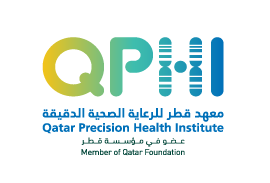
PPM2-0226-170020
| Project Information |
|---|
Proposal Number: PPM2-0226-170020 Program Cycle : PPM 02 Submitting Institution Name : Weill Cornell Medical College in Qatar
Project Status : Award Active Start Date : 15/12/2017 Lead Investigator : Dr. Noha Yousri Project Duration : 3 Year(s) End Date : 30/06/2021 Submission Type : New Proposal Title : Qatar Epigenome: Profiling of Epigenetic modifications and identification of Epigenome Wide predictors of Type 2 Diabetes and Obesity in Qataris from the QGP pilot study. |
| Project Summary | |||||||||||||||
|---|---|---|---|---|---|---|---|---|---|---|---|---|---|---|---|
Proposal Description: Epigenetics have long been known for their role in understanding the pathology of diseases, where both genetics and epigenetics are used to decipher the missing heritability. T2D and obesity are prevalent metabolic diseases/disorders in the Qatari population, and where genetics can only explain a small percent of the missing heritability for those phenotypes. Thus, several studies have investigated Epigenome Wide associations with T2D and linked those findings with genetic variants associated with the phenotype. BMI has also been investigated for epigenetic biomarkers and found to be associated with numerous epigenetic loci. Previous studies have only included 123 individuals from the Qatari population and discovered one significant methylation site associated with T2D and few others with BMI. This study will profile DNA methylation sites for 1000 samples (850,000 sites per sample) from the Qatar Genome samples which are already Whole Genome Sequenced. The DNA of the 1000 samples will be obtained from Qatar Bio-Bank, and ~50% of the samples will be selected to be T2D. BMI information will also be requested for all 1000 samples, and groups of obese, overweight and normal BMI samples will be included. The main objectives are A) Profiling epigenomics data for 1000 Qataris from the QGP, B) Identifying Epigenome Wide Associations (EWAS) with T2D and obesity (BMI) separately, to discover the epigenetic markers that associate with those phenotypes, and find genetic variants from WGS that affect the identified associations, C) Identifying T2D and obesity EWAS loci that gain power from meta-analysis with cohorts of different ethnicities (5000 samples (140 samples with T2D) from "Generation Scotland" study), and D) Investigate the efficiency of using the identified markers in each of T2D or obesity for predicting the phenotype. The main outcomes of the project will be A) Epigenomics profiles of 1000 Qataris that will be available for future studies that want to link other omics with epigenetic modifications, B) the identified epigenetic markers associated with T2D and obesity, and C) statistical results indicating the strength of those markers in predicting or diagnosing the phenotypes. The results will be disseminated by publishing in international journals and presentation in conferences. Epigenomics data fro 1000 Qataris and an EWAS pipeline will be available for future collaborations. This is the first time for epigenomic profiling of a large number of Qataris that is used for EWAS on T2D or obesity and for meta-analysis in this population. Research Area Keywords: Epigenomics; Epigenome Wide Association Studies; Genome Wide Association Studies; Type 2 Diabetes; Obesity/BMI Research Type Translational Research / Experimental Development
|
| Project Summary | ||||||||||||
|---|---|---|---|---|---|---|---|---|---|---|---|---|
|
| Personnel | ||||||||||||||||||
|---|---|---|---|---|---|---|---|---|---|---|---|---|---|---|---|---|---|---|
|

